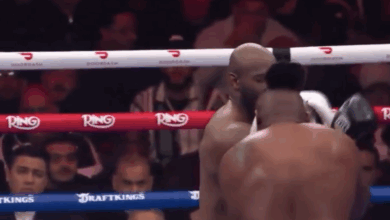The Underdog Effect in MMA Betting
When a fighter walks in with nothing to lose but a chip on their shoulder, bettors and fans alike tend to take notice. The world of MMA is rewriting the rules of risk, reward and expectation and long shots are hitting more than ever.
There’s something timeless about rooting for the underdog. Maybe it’s the Rocky syndrome, or maybe we just like being part of the upset. In MMA, that appeal is more than emotional… It’s strategic. Over the past few years, fighters once counted out by analysts and oddsmakers have consistently turned the tide, shaking up rankings and, more importantly for bettors, upsetting the books.
As someone who casually tracks fights and places the occasional wager, I’ve noticed a shift in how underdogs are perceived, not just as hail-mary picks, but as calculated risks. And it’s changing how people engage with sports betting online.
The rise of the surprise winners
It wasn’t long ago that Sean Strickland stunned the MMA world by dethroning Israel Adesanya, not just winning but dominating. Few gave Strickland a real shot heading into that bout. His odds reflected it but he controlled the tempo, neutralized Adesanya’s movement and walked away with the belt. Bettors who took that risk saw major returns, but more than that, it marked a turning point.
Analysts started asking tougher questions. Are we undervaluing momentum? Is fight IQ harder to measure than we think? Strickland wasn’t alone. Brandon Royval, Alexa Grasso and more recently Diego Lopes have all cashed in as overlooked contenders. These aren’t one-off flukes. There’s a pattern and bettors are adjusting.
What makes a live dog
In the fight community, a “live dog” is an underdog with a real path to victory, not just mathematically, but stylistically. Maybe they’re a strong wrestler facing a striker with questionable takedown defense. Maybe their cardio holds up while the favorite fades by round three. It’s not just stats, it’s narrative. And bettors are starting to lean into these storylines.
I’ve followed message boards where users dissect old sparring sessions, examine camp changes, or track how a fighter performs on short notice. One guy broke down a fighter’s dog walk routine (seriously) as a clue to how settled they’d feel on fight night. It sounds silly, but these oddball details form a kind of amateur analytics that’s starting to influence picks.
Betting underdogs isn’t just about chasing a payday anymore. It’s about finding value in unexpected places. A small underdog who’s been overlooked in media coverage might be more focused, less distracted and more motivated. Combine that with a matchup that favors their game plan and suddenly those +300 odds don’t look so wild.
Why fans love betting against the grain
There’s also a cultural energy behind picking the upset. Sports fans in general love saying “I told you so,” and betting on an underdog gives you that edge if things swing your way. It’s not just about being right. It’s about feeling right before the fight even starts.
Fighting is unpredictable by nature. One clean shot or bad round can flip everything. That volatility, while nerve-wracking, creates opportunity. And with combat sports’ growing presence on platforms offering sports betting online, more fans are realizing they don’t have to stick to safe bets to play smart.
I know someone who almost never bets favorites anymore. He calls it “banking on the chaos.” Not a great strategy for everyone, but he argues that the public often inflates the value of crowd-favorite fighters. He looks for technical gaps, weight cut issues, or even travel fatigue. tiny cracks that make an underdog dangerous.
When the odds don’t tell the whole story
It’s important to note: oddsmakers are generally sharp. They price lines based on data, momentum and betting volume. But they’re also swayed by public perception and that’s where sharp bettors spot gaps. If a fighter trains with a popular gym or has a charismatic post-fight interview, their line might skew slightly despite their resume.
That’s why some experienced bettors create their own lines before checking the books. They analyze metrics like significant strike defense, submission attempts per 15 minutes and takedown accuracy. Then, if they see a divergence between their projection and the actual odds, they circle the matchup.
One example that stuck with me was when Alexa Grasso faced Valentina Shevchenko. Most assumed Valentina had a lock on the division. Grasso had skills, but she wasn’t the flashy pick. She got the finish and opened a new era for the weight class.
Underdogs as the heartbeat of MMA
Ultimately, underdogs are essential to the identity of MMA. The sport grew out of chaos and competition. Styles clashed. Rankings rarely held. That spirit lives on and it’s reflected in how fans bet. Whether it’s a veteran with one last shot at glory or a newcomer with nothing to lose, there’s something deeply satisfying about seeing the overlooked fighter get their moment.
From a betting standpoint, backing underdogs still carries risk (of course it does), but it’s no longer a blind gamble. It’s research, intuition and maybe a touch of rebellion.
The next time you’re scanning the odds, don’t just skip over the plus signs. Read between the numbers, look at the context and consider the intangible edge that comes from being counted out. It might just be the smartest play of the night.



